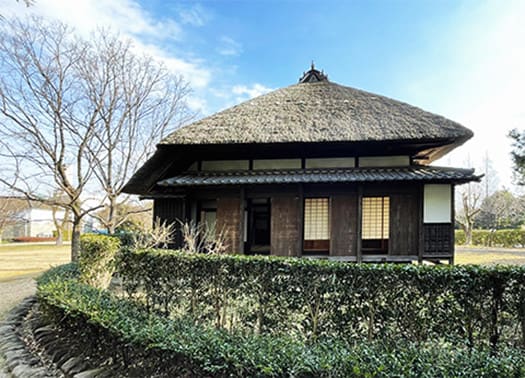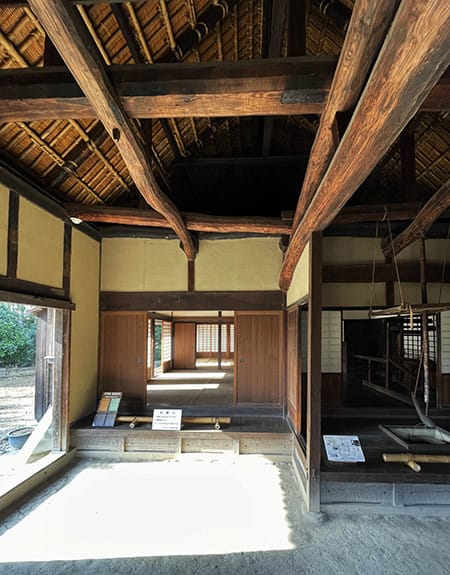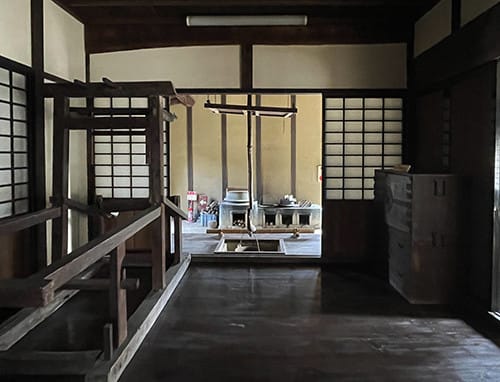


さて日本人の倫理感の一断面として「落とし物が帰ってくる」確率が異常に高いということと、そういう日本の社会性はどのように育てられてきたかについて考えて見た。
ちょうど浦和の古民家群取材で神社の神職にしてお寺の住職でもあった庫裡の家を見ていたので日本的宗教性と倫理規範との関係に自然とテーマが向かったということ。
人類が進化して行く過程で宗教というものは必然的に随伴してきたものでしょう。言葉が生まれてコミュニケーションが成立し社会というものが生成した。ある種の「掟」が必要になっていって、それが「体系化」される必然が生まれた。まずはエジプトとかメソポタミアなどで社会が生まれたとき、基本的には太陽への自然崇拝が同時進行したと思える。たぶん人類普遍としては、太陽とか天体観測がベースになったことだろう。
天体の運行というものの規則性、不変なるものへの憧憬が共有の思考基盤になることは非常にわかりやすい。地球上に生きるイキモノすべてに共有可能な知識でしょう。とくに人類という存在はグレートジャーニーによって地球上の全大陸に進出した。そのときにいわば「羅針盤」としての天体運行、太陽の動きの把握はもっとも肝要だったに違いない。定住が始まって農業社会が始まったときにはとくに太陽の運行の研究は切実なテーマであり権力を持つ「支配層」はそれを必死で考えたことだろう。
日本社会は縄文の世以来、すべてに「神が宿る」という自然崇拝が基本。四季変化の明瞭な気候と、火山列島としての各地域の風土性の違いが大きく、いわゆる「八百万」の神々という社会が成立した。出雲にはそうした神々が一度に集う時期があって「神在月」と呼ばれ、それ以外の地域では「神無月」とされた。きわめて分権制の高い連合国家がマザーの日本社会だったのだと思う。
神道というものの基盤はこうした八百万の社会規範だったのだと思う。そしてそれぞれの地域社会で有力者が出現していった。そういう精神性風土に対してヤマト王権というゆるやかな古代王権が連合国家的なまとまりを作って行った。神武東征による政権の樹立経緯などがそれに当たるのだろう。
そこからさらに東アジア世界で政治権力強勢の律令制国家が出現したことで、国家の近代化の必要性が高まって仏教の導入が行われた。日本の不思議さは、これらの社会システム変換の度に、きわめて柔軟にその変化を受容してきたことではないか。もちろん多少の戦乱争闘はあったけれど、中国大陸・朝鮮半島のような激烈さはなかった。きわめて平和的に受容し続けたのだろう。
そういう歴史の流れの末に、わたしたち社会は、どこでモノを紛失しても「届け出る」倫理感の高い国民性を獲得してきている。驚くべき先人たちの知恵と思えてならない。
やはり「お天道様が見ている」自然への深い帰依か?
English version⬇
Shinto and Buddhist Beliefs and Japanese Ethics: Hikawa Shrine and Anrakuji Temple - 6
Why do lost and found items have an unusually high probability of being returned to their rightful owners in Japanese society? Why is it that the probability of lost and found items being returned is so high in Japanese society? ...
I have been thinking about the unusually high probability of "lost items coming back" as one aspect of the Japanese sense of ethics, and how such a Japanese social character has been nurtured.
I had just visited an old house in Urawa where a priest of a Shinto shrine and a priest of a temple lived, so my theme naturally turned to the relationship between Japanese religiosity and ethical standards.
Religion has been an inevitable part of the human evolutionary process. Language was born, communication was established, and society was born. Certain "rules" became necessary, and the necessity to "systematize" them arose. First of all, when societies were born in Egypt and Mesopotamia, it seems that nature worship of the sun basically proceeded at the same time. Perhaps, as a universal human concept, it was based on the observation of the sun and celestial bodies.
It is very easy to understand that the yearning for the regularity and constancy of the celestial movements is the basis of shared thinking. It is a knowledge that can be shared by all living things on earth. In particular, the human race has advanced to all continents of the earth in its Great Journey. At that time, understanding celestial navigation and the movement of the sun as a "compass," so to speak, must have been most important. When agricultural societies began to settle in Japan, the study of the sun became an especially important theme, and the "ruling class" must have thought about how to make use of it.
Since the Jomon period, Japanese society has been based on the worship of nature, believing that there is a god dwelling in all things. The climate, with its distinct seasonal changes, and the great differences in the climatic characteristics of the various regions of the volcanic archipelago, have led to the establishment of a society of so-called "eight million" deities. In Izumo, there was a period when all the gods gathered at once, which was called "kamizaitsuki," while in other areas it was called "kaminashizuki. I believe that the Japanese society of the mothers was a highly decentralized federation of states.
I believe that the foundation of Shinto was this social norm of eight million people. And in each local society, powerful figures emerged. In response to this spiritual climate, a loose ancient royal power called the Yamato Royalty established a united state-like structure. The establishment of the government through the Jinmu expedition is probably a good example of this.
The emergence of the Ritsuryo system of government in East Asia further increased the need for modernization of the nation and led to the introduction of Buddhism. The wonder of Japan is that it has been extremely flexible in accepting these changes in its social system. Of course, there were some wars and struggles, but nothing as violent as in mainland China or the Korean peninsula. They have continued to accept the changes in an extremely peaceful manner.
As a result of this historical process, our society has acquired a high sense of ethics and a national character that allows us to "report" the loss of any item, no matter where it is lost. This is a remarkable wisdom of our ancestors.
Is it still a deep devotion to nature that "the heavens are watching"?










